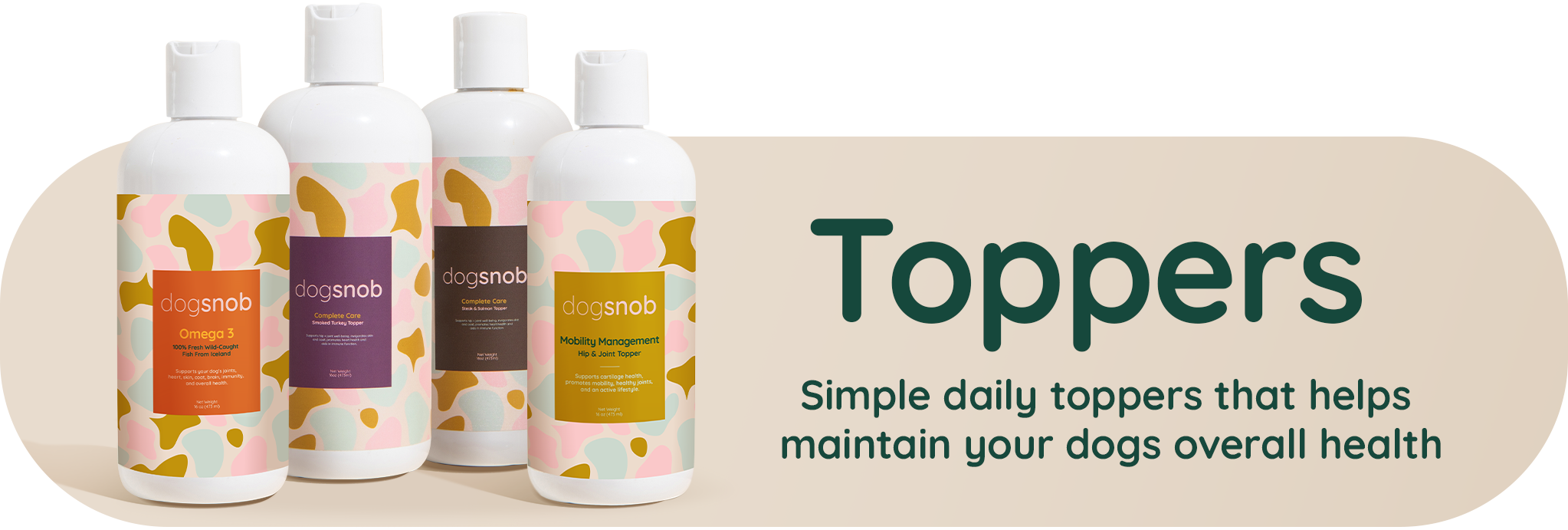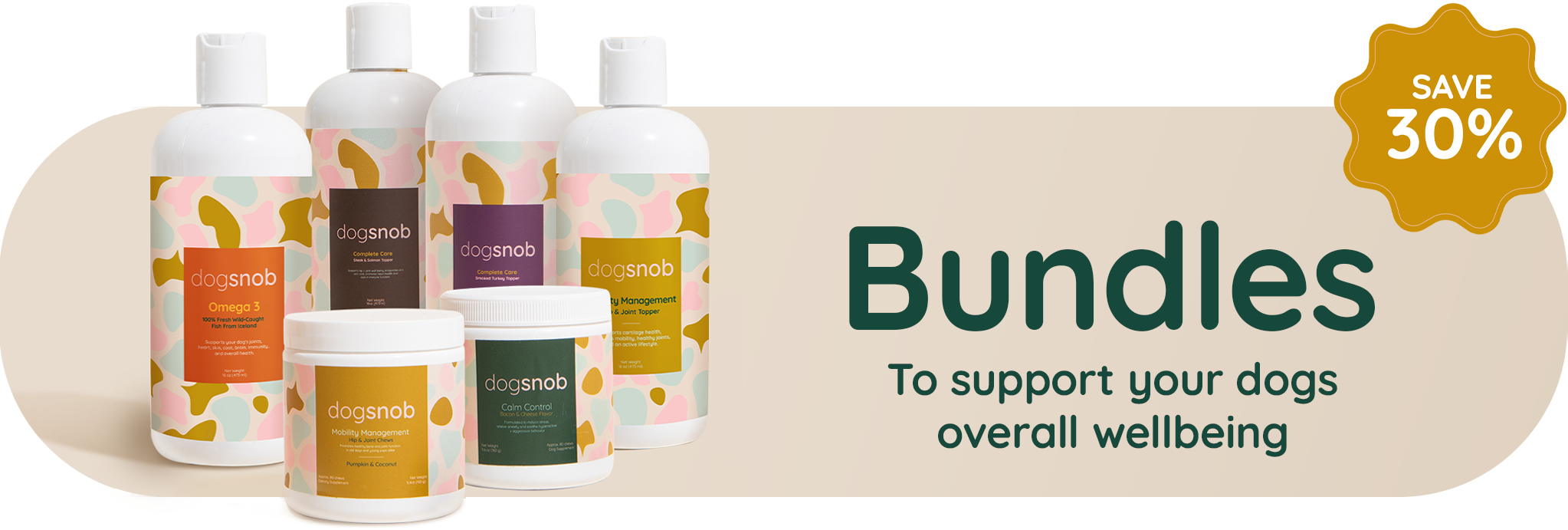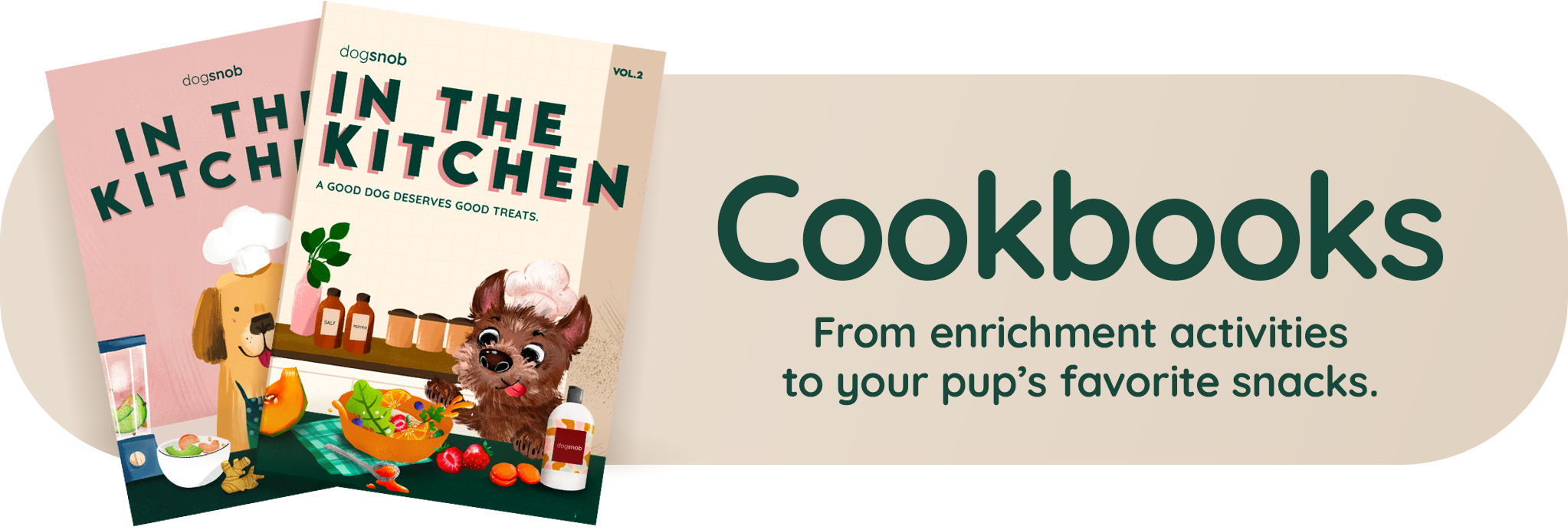Below is a brief breakdown of the canine digestive system, how it works, what food to avoid, and what kind of nutrients and vitamins your dog needs.
As food fiends, dogs are prone to gulping food that may or may not be good for them. They can also be picky eaters who only eat specific food or flavor. Either way, as dog owners, it is very important to know and understand your pet’s gut health.
Canine Digestive System
The canine digestive system is quite a complex process involving strong acids and reversed ingestion storage. According to the Innovative Veterinary Care Journal, dogs store their ingestion differently than humans. Instead of keeping 30% of ingesta in their stomach and 70% in their intestinal tract as humans do, dogs have it reversed where 70% of ingesta remains in the stomach and 30% goes in the intestinal tract. Hence, why dogs can eat bigger meals more frequently.

What Pups Cannot Eat
To understand a dog’s digestion, you should also know what kind of food dogs cannot eat. Some dogs develop food sensitivities and allergies. In a separate blog post, we talked about common food allergies in dogs, what causes them, and how to avoid them.
Aside from allergies and food sensitivities, certain foods are just completely off-limits to dogs. Food like grapes, wild berries, and sometimes spinach causes stomach problems in dogs, and worse, they can also be fatal. Take a look at the fruits or vegetables you can or cannot feed your dog.
How Long Does It Take a Dog to Digest Food
The process of digesting food varies depending on the breed, diet, age, and size of the dog. To make a long story short, it takes smaller dogs 4 to 8 hours to digest food, while bigger dogs take about 8 to 10 hours.
Factors that Impact Canine Digestion
Size
As mentioned, the size of the dog plays a role in their digestion. Smaller dogs and puppies tend to digest their meals in a shorter amount of time due to the length of their gastrointestinal tract. Larger dogs obviously have a longer GI tract that makes the food move through slowly.
Breed
The breed of the dog naturally correlates to their size, so bigger breeds like German Shepherds, Great Danes, or Huskies have longer digestion time. However, some dog breeds are also more prone to food sensitivities and gastrointestinal issues.
Dog breeds like Scottish Terriers, Great Danes, German Shepherds, Golden Retrievers, and Collies are more prone to digestive problems. They are more likely to have infections in the gastrointestinal tract like gastroenteritis, colitis, constipation, diarrhea, Gastric Dilatation and Volvulus (GDV) or also known as bloating.
Activity
Exercise plays an important role too. Naturally, the more active the dog is, the faster its metabolism gets. A high energy dog will burn more calories and will turn food into energy a lot faster than a dog who doesn't spend much time running. This is why physical activity in dogs is crucial to their overall health and well-being.
Food
Foods that are high in fiber will move through the stomach faster than foods that are high in protein. Dog owners should take their dog’s diet into consideration when it comes to their gut health. It is important to have a well-balanced diet where dogs can have a good amount of protein and fiber. Too much fiber can obviously lead to diarrhea, while too much protein can induce constipation.
Dog’s Digestive Process

Mouth
The mouth is where the digestive process begins. Unlike humans who process food by chewing and using saliva to break down food, dogs tend to swallow their food. They do not have the same enzymes we humans have that can break down food through chewing, instead, most of the digestive process occurs in the stomach.
Esophagus
The next step or organ after the mouth is the esophagus. This is where the food passes through, and where strong muscles push down food into the stomach.
Stomach
Now, this is where the digestive process officially begins. A dog’s stomach contains acids that are 100 times stronger than humans. This is also why they do not need to chew their food because these acids alone can break it down easily. The stomach produces acids and digestive enzymes like pepsinogen, trypsin, and chymotrypsin that will break down proteins into smaller amino acids.
Intestines
After breaking down the food, the mushy liquid that comes after passes through the small intestines. Here, the body absorbs the nutrients extracted from the food. Anything left after that is then passed through the large intestine where waste products are eliminated.
Colon
The colon is where all food waste turns into fecal matter. This is where the last stages of the digestive process occur.
Vitamins and Supplements

As dogs get older, they lose the ability to digest food better. To ensure that they are maintaining good health, it’s advisable to add dog food vitamins and supplements to their diet. Although, you don’t need to wait for them to get older before you start giving them supplements. Vitamins and supplements can especially help with your dog’s intake of vitamins and minerals. It is a great addition to ensure that your dog is receiving the appropriate nutrition it needs.
However, it is also important to remember that too many supplements do not necessarily yield better results. It’s important to find something that carries a lot without sacrificing quality, some sort of dog multivitamins should do the trick. Dogsnob’s 5-in-1 Vitamin Superfood gravy is an all-in-one topper that fills in the nutritional gaps provided by regular kibble. The formula supports digestive health and improves a dog's immune system, among other things.
Natural Ingredients to improve digestion
Probiotics
According to Pet MD, probiotics are microorganisms that live in the digestive tract. It is composed of billions of bacteria and a few yeasts that live in the gastrointestinal system of animals. Probiotics are essentially healthy gut bacteria that “balance the internal environment to prevent disease and promote health.” Due to the beneficial nature of probiotics, it is considered natural ingredients that help improve digestion in dogs. Probiotics are commonly found in yogurt or kefir.
Easy to digest proteins
A high-protein diet is helpful for dogs but too much protein can cause problems in the long run, leading to dog obesity. The key is to use easy-to-digest proteins like eggs, poultry, salmon, beef, and soy. Here are the best foods for dogs, especially those with sensitive skins, among other things.
Avoid these ingredients
Gluten
Some dog food contains wheat and powdered gluten in them, and that is not necessarily a bad thing. But most dogs have also acquired sensitivities to gluten which interfere with their digestion. Gluten intolerance is different from an allergy, whereas gluten proteins become undigested and are left hanging in a dog’s intestinal tract. This causes irritation, inflammation, and other problems like skin rashes, chronic fatigue, and nutrient deficiencies.
Dairy
Similar to gluten intolerance, dogs can also be lactose intolerant. Due to their inability to break down the proteins found in dairy products, it becomes difficult for them to digest them, leading to constipation and other digestive problems. Dogs with lactose intolerance can suffer from gas, bloating, indigestion, and diarrhea.
Artificial colorings
Dog food is usually dyed with artificial colorings to give off a more appetizing look. These dyes do not carry any nutritional benefits at all. You should avoid artificial colors like red, orange, yellow, green, blue, and purple because these are the ones that contain harmful chemicals. Dogs will have difficulty digesting these artificial colors. Instead, opt for dyes that are sourced from natural ingredients like beet and turmeric.

What to do when changing foods
First, it’s important to consult your veterinarian if you plan on changing your pet’s diet. If you’re coming from a kibble-only diet and then switching it to raw food, this is a big step that needs professional guidance from your vet. Moreover, when changing food or diet, the transition should be done slowly. Do not drastically change anything as this will only cause stomach problems for your dog. This is especially true if you are unaware of your pet’s sensitivities or allergic reactions to foods.
Summary
It is important to understand your dog’s digestion process especially if your pup has a sensitive stomach. The number of times we clean up after them should suffice our curiosity as to how exactly they process food. Not to mention that dogs typically “wolf down” food, meaning that they swallow first without chewing. Hence, they are also prone to swallowing foreign objects from time to time. There’s also the fact that they are food fiends who love to sniff, taste, and eat anything in front of them, so it is only natural that as owners, it is important to understand a dog’s digestive health and how to improve it for the betterment of your furry friend.





